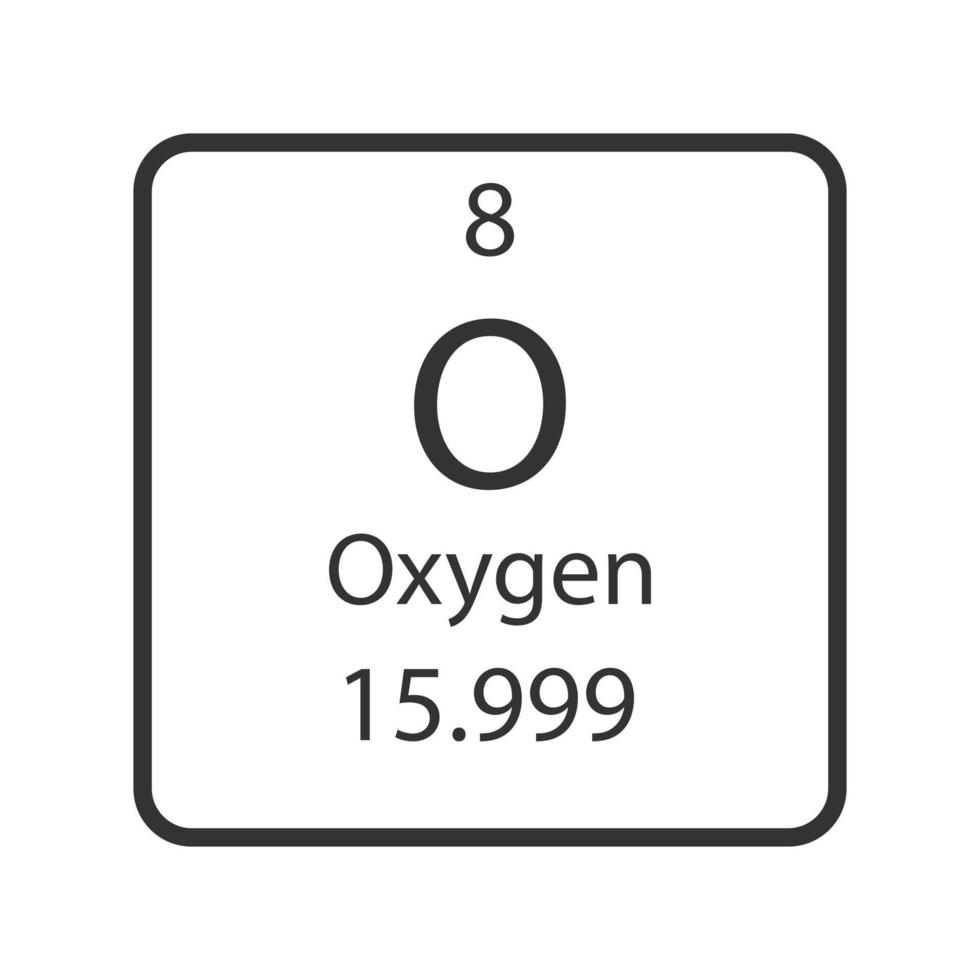The scientific method is an everyday process using observations to make a prediction.
True or False
True
Is this an example of inductive or deductive reasoning?
"If all birds have feathers and this thing has feathers, then it must be a bird."
Deductive - theory to observation
What question does the indepdendent variable ask?
What are you changing in the experiment?
What is the Atomic Number of this element?

8
Find the Density when volume is 95 cm3 and mass is 950 grams.
SHOW YOUR WORK!
D=M/V
D= 950g/95 cm3
D=10 g/cm3
What is an example of Qualitative Data?
Descriptions or words such as: Title of a chart or graph, colors, textures, or smells
Is this an example of Deductive or Inductive Reasoning? WHY
This animal is a bird and it has feathers, that animal is a bird, it has feathers. Rule or pattern- “All birds have feathers”
Inductive because you are developing a “Rule of Nature” from many observations aka observation to theory.
What question does the Dependent Variable ask?
What are you measuring as a result?
How do you find the Atomic Mass of an element?
_____+_____= Atomic Mass
Protons+Neutrons=Atomic Mass
Find Volume when Density is 5 g/cm3 and Mass is 20g.
SHOW YOUR WORK!
V=M/D
V=20g/5g per cm3
V=4 cm3
What is an example of Quantitative Data?
Numbers or measurements such as: 5 cm in length, 5 grams of salt, 2 liters of water
Is this Inductive or Deductive? WHY?
This is an orange. It grows on a tree. Therefore, all oranges grow on trees.
Inductive because you are developing a “Rule of Nature” from many observations.
The time it takes to run a mile DEPENDS on the person's running speed.
What are the independent and dependent variables in this experiment?
Independent: Person's Running Speed
Dependent: Time it takes to run a mile
The number of Protons OR Electrons is the same as the what?
Atomic Number
Find the Mass when Density is 12 g/cm3 and Volume is 2 cm3.
SHOW YOUR WORK!
M=DxV
M=12 cm3 x 12 g/cm3
M=24g
A Control asks the question:
A. What are you changing?
B. What are you measuring as a result?
C. What are you keeping the same?
C. What are you keeping the same?
Is this an example of Inductive or Deductive Reasoning? WHY
When tigers are exposed to rage, they tend to become violent. Rocky is a tiger, therefore, Rocky will become violent when exposed to rage.
Deductive because it is going from theory to observation.
Plants growing faster DEPENDS on warmer temperatures.
What are the Independent and Dependent variables?
Independent: Warmer temperatures
Dependent:Plants growing faster
How do you find the number of Neutrons?
______ - ______=Neutrons
Atomic Mass - Atomic Number= # of Neutrons
Find the Mass of an object that has the volume of 10cm3 and a density of 5 g/cm3.
SHOW YOUR WORK!
M=DxV
M=10cm3x5 g/cm3
M=50grams
What are the 7 main steps in the Scientific Method?
Step 1: State the Problem or Question based on observations
Step 2: Gather information (research)
Step 3: Form a hypothesis (a guess based on what you already know)
Step 4: Test the hypothesis by making an experiment
Step 5: Collect & Analyze data
Step 6: Draw conclusions. If the data does not support the hypothesis, a new hypothesis is made and the process starts again.
Step 7: Share information with others (report your findings)
Is this Inductive or Deductive Reasoning? WHY?
Henry is a man. He is also a human being. Therefore, all men are human beings.
Inductive because it is starting with an observation.
Mike wants to test if a certain gum really has longer lasting flavor. He buys 2 different types of gum. He chews each piece and measures the amount of time it takes for the flavor to run out. He also has 3 friends who try the experiment as well and compares the results.
Name the Indepepdent and Dependent Variables in this experiment.
Idependent: Type of gum
Dependent: Amount of time it takes for flavor to run out
How many Neutrons are in this element? Round to nearest whole number.
HINT: Atomic Mass-Atomic #=Neutrons

6
What are the definitions of mass, volume, and density?
Mass: How much matter is in an object
Volume: The amount of space taken up by a 3D object
Density: Amount of matter in a given space